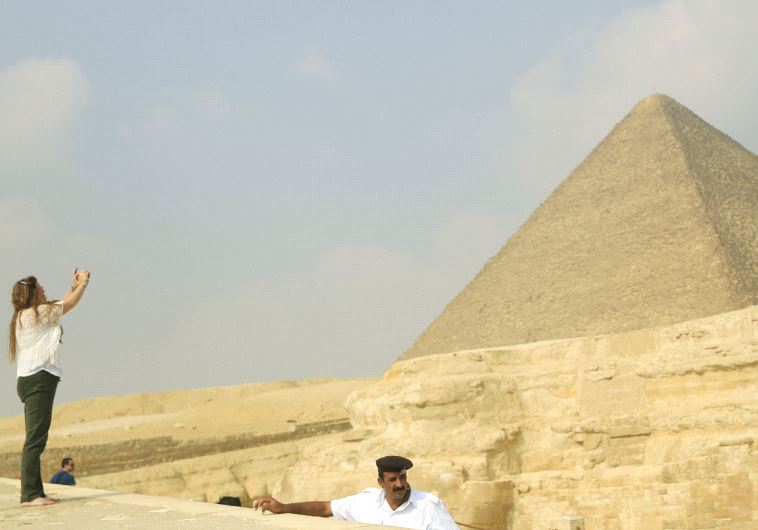This Normal Life: Snub from Cairo
Ahmed, our tour guide, clearly didn’t know what to make of us; He definitely realized that something about this typical “American” family was odd.
 A tourist takes a photo of the Giza Pyramids on the outskirts of CairoUpdated:
A tourist takes a photo of the Giza Pyramids on the outskirts of CairoUpdated: